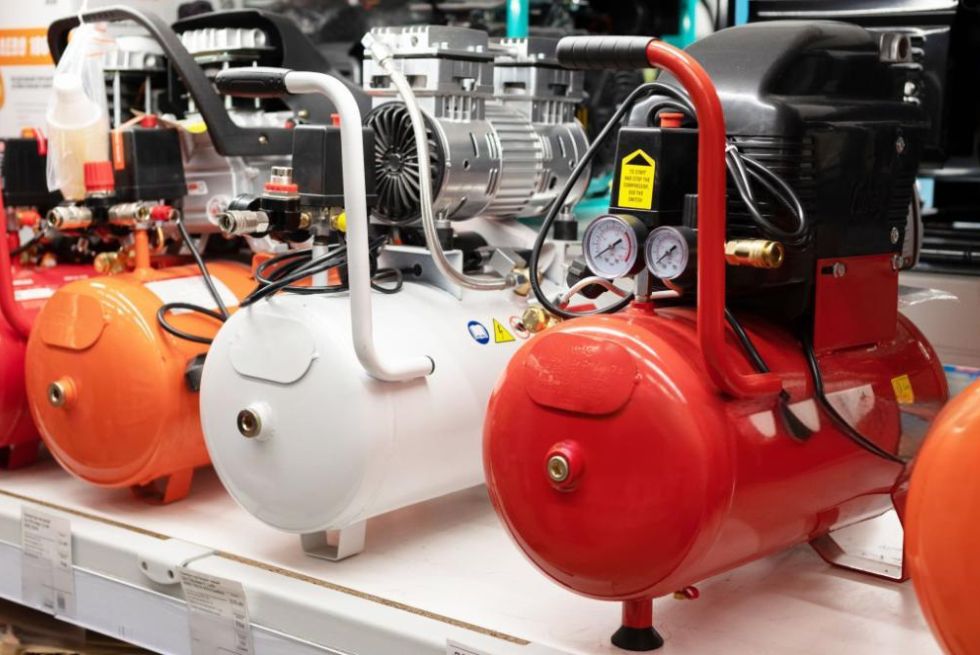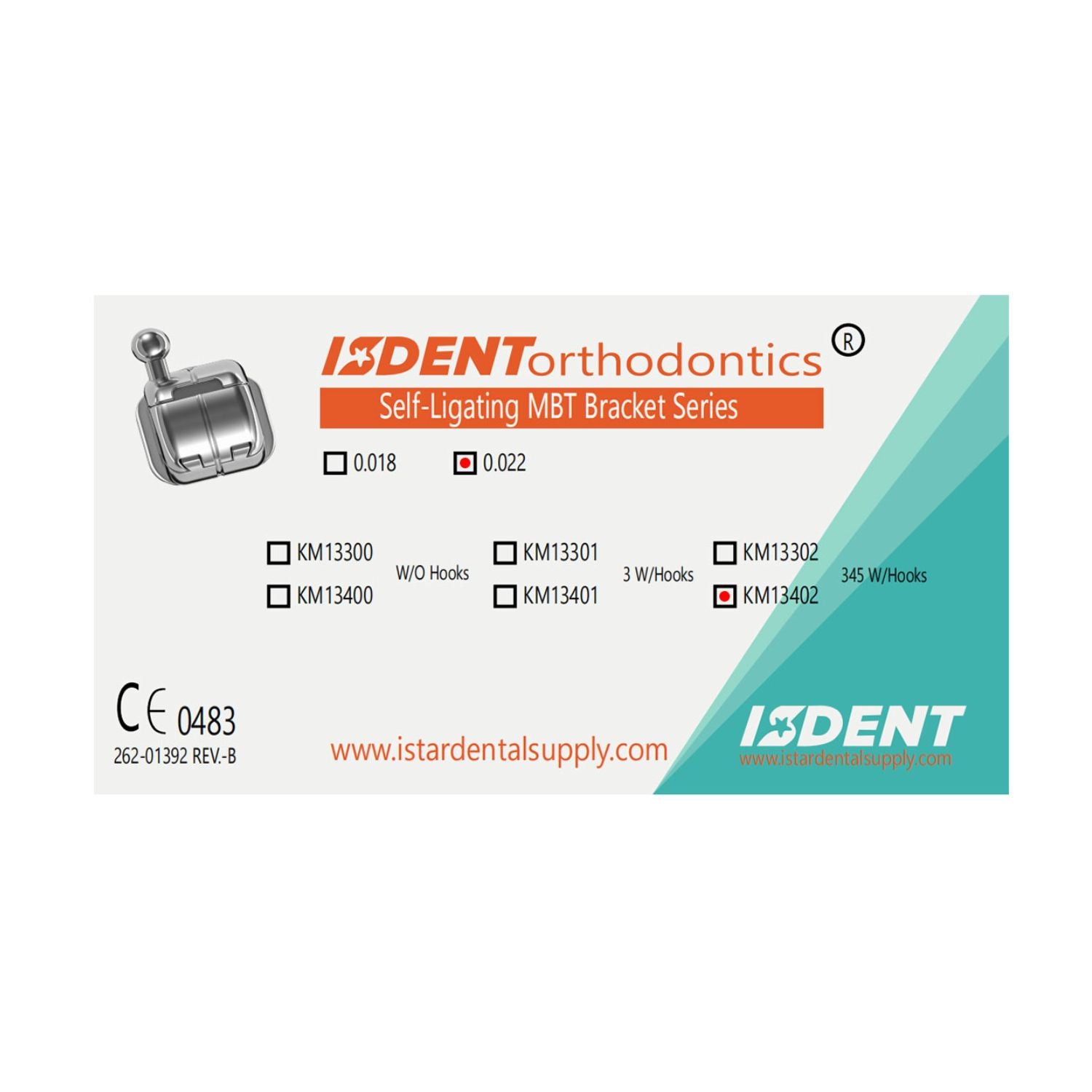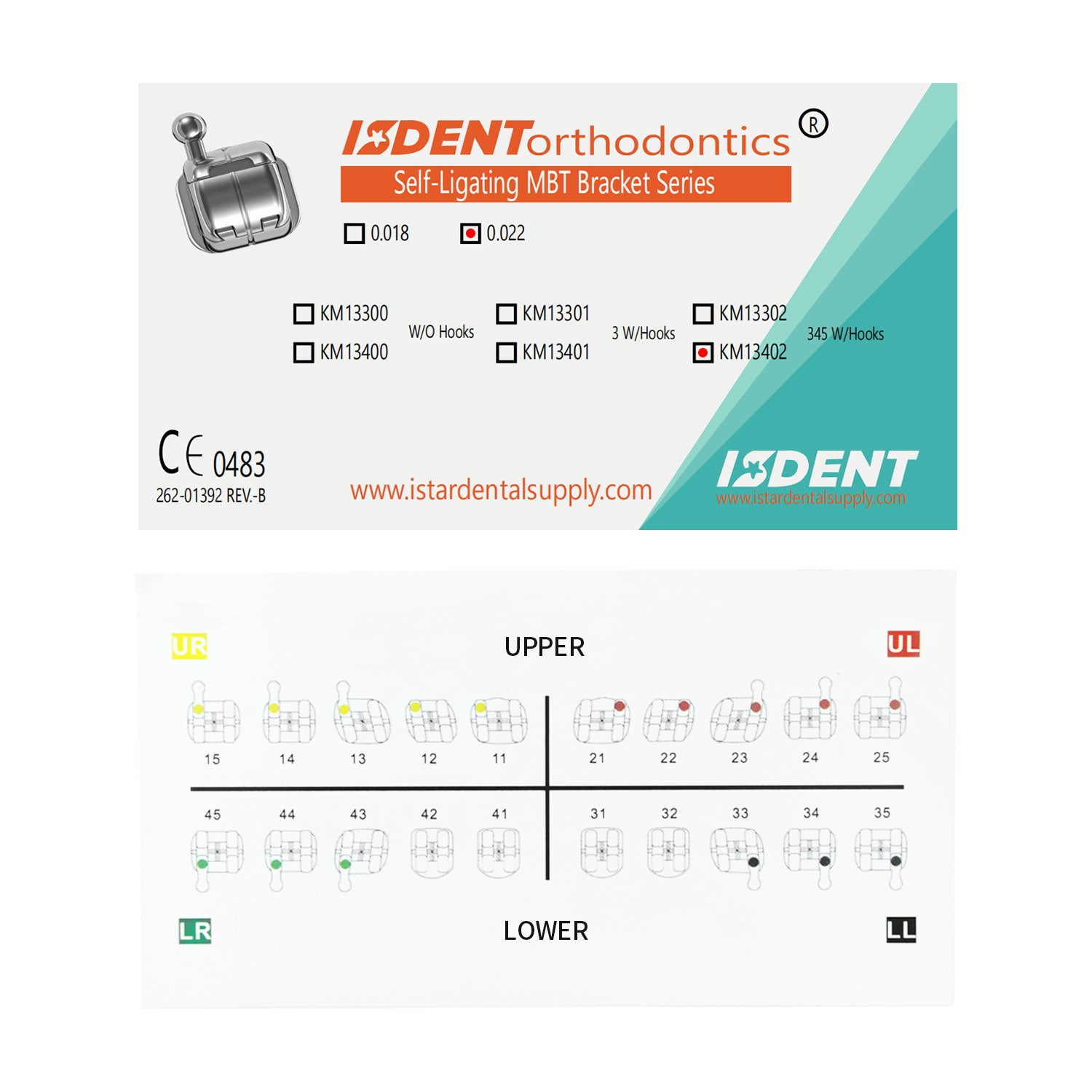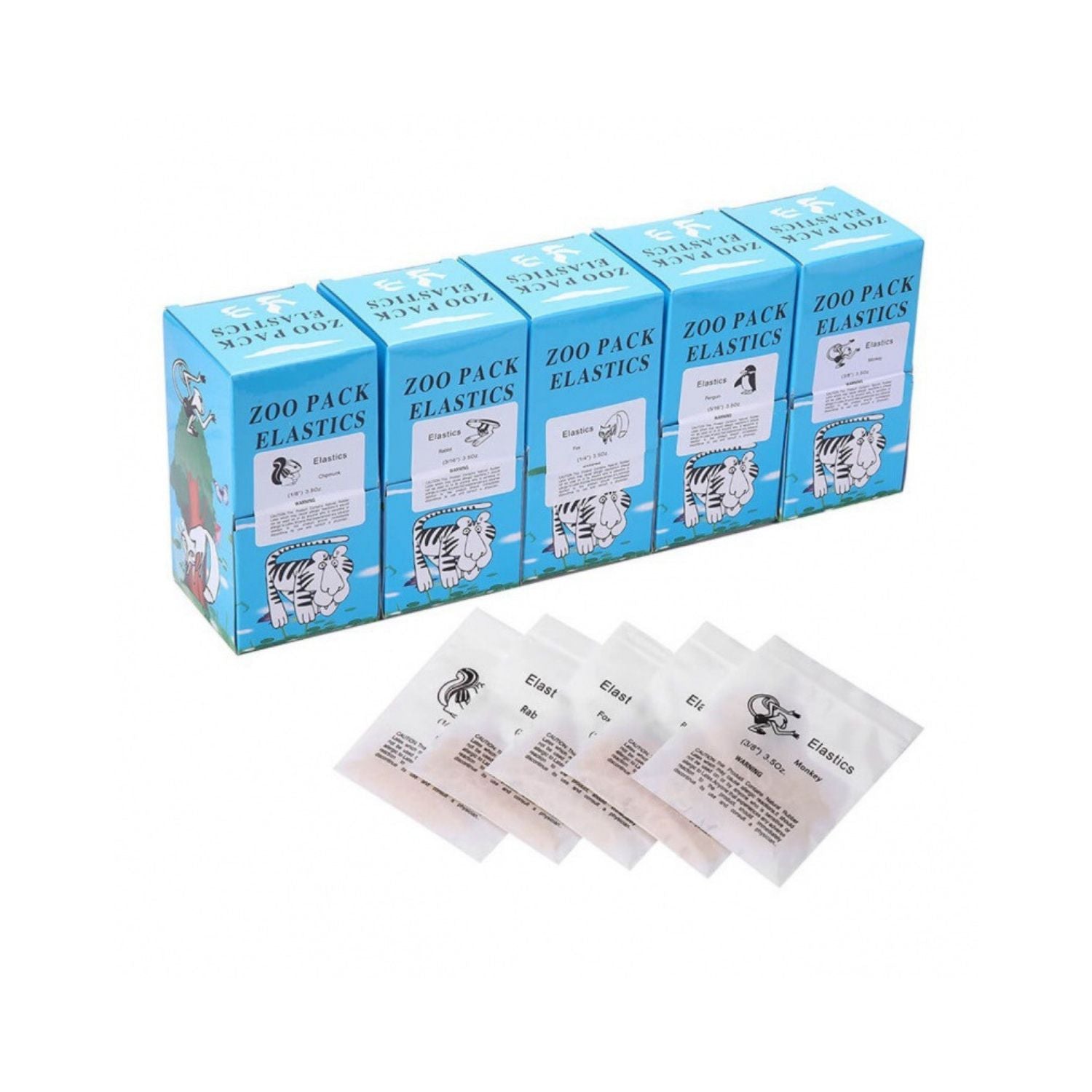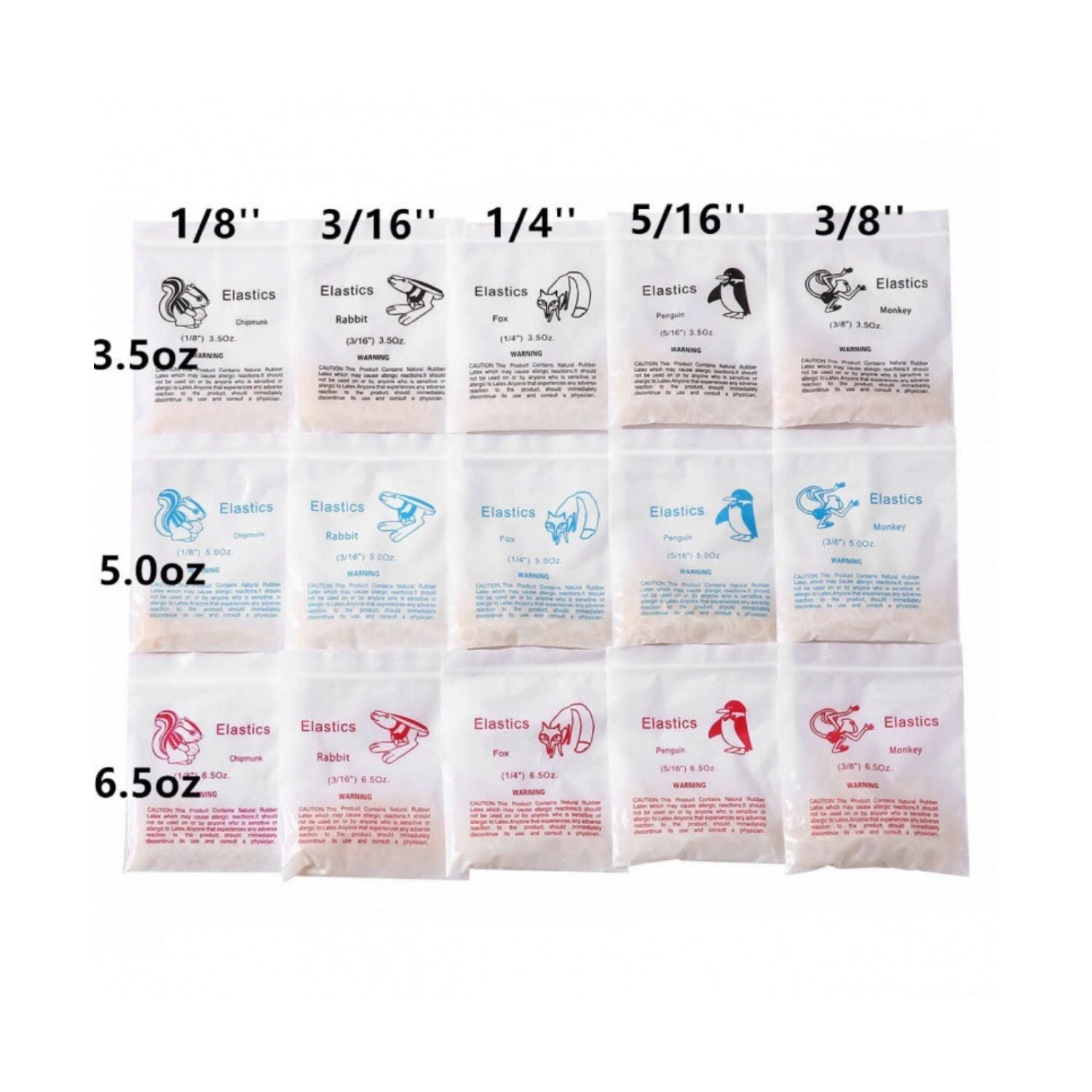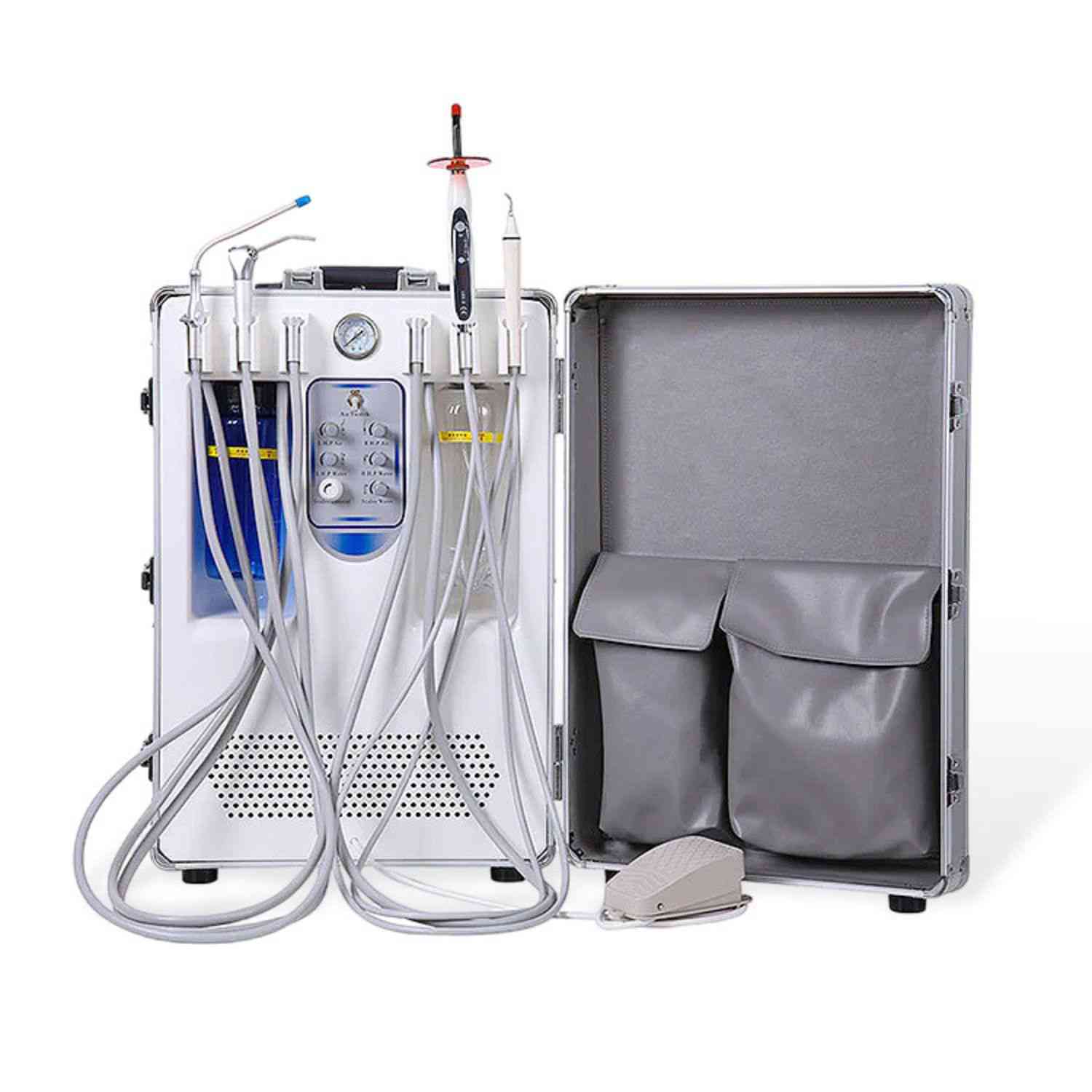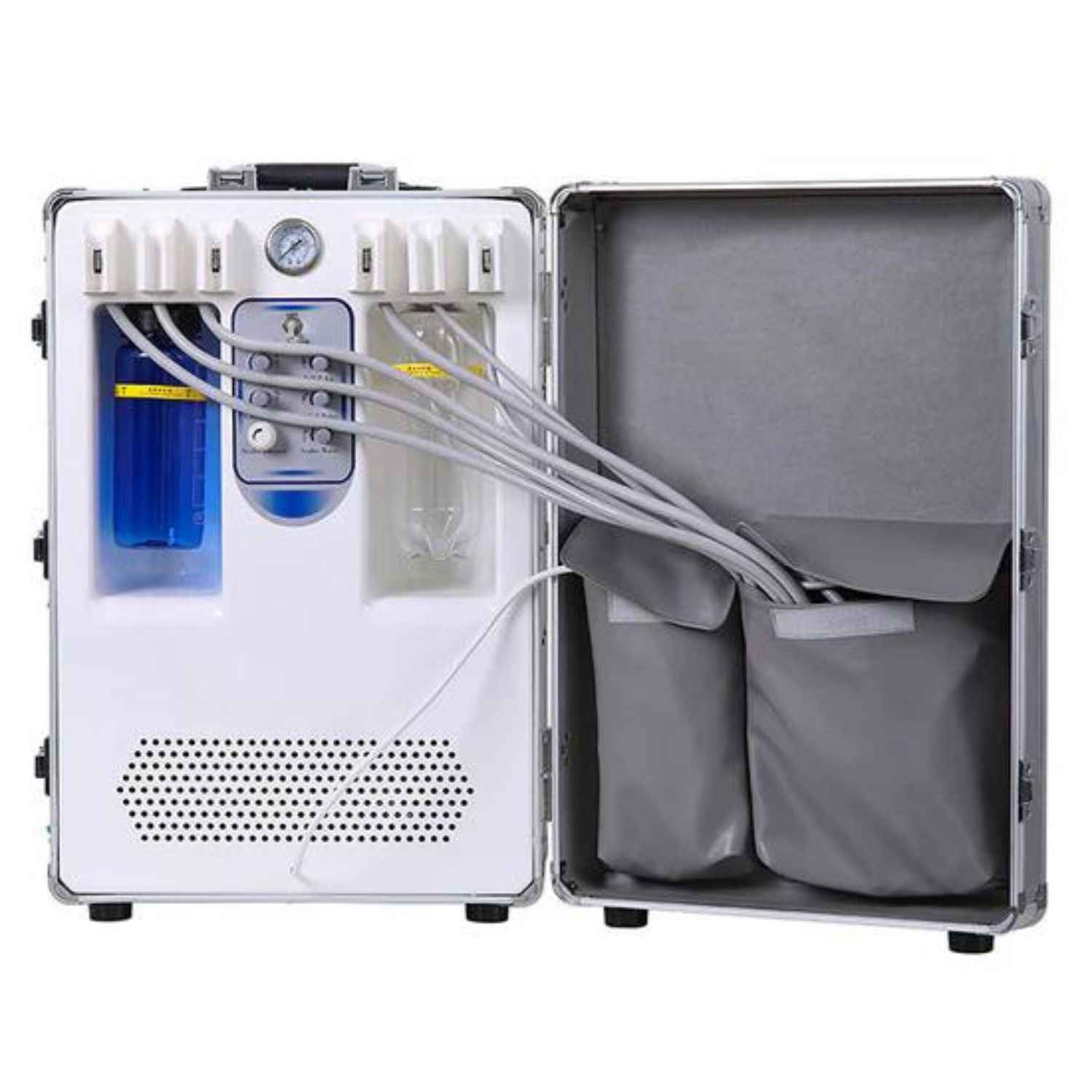Oil vs Oil-Free Air Compressors: Which One is Right for You?
Are you trying to pick between an oil and oil-free air compressor? This choice matters a lot! The right compressor can save you money and work better for your needs. Let's look at the key differences, pros and cons, and best uses for each type.
What Are Air Compressors?
Air compressors are machines that take in air and squeeze it to make pressure. This pressurized air powers many tools and machines in homes, dental offices, auto shops, and factories.
When choosing a compressor, the biggest decision is between oil-lubricated and oil-free models. This choice affects:
- How clean the air will be
- How much care the machine needs
- How long it will last
- What jobs it's best for
Quick Comparison: Oil vs Oil-Free Air Compressors
| Feature | Oil-Lubricated Compressors | Oil-Free Compressors |
|---|---|---|
| Air Purity | May have oil in the air | 100% oil-free (Class 0) |
| Maintenance | Needs regular oil changes | Less maintenance needed |
| Cost | More expensive long-term | Cheaper upfront |
| Noise | Quieter (60-70 dB) | Louder (75-85 dB) |
| Lifespan | 10,000-20,000 hours | 5,000-8,000 hours |
| Best Uses | Heavy factory work, auto shops | Food, medical, electronics |
| Energy Use | Less efficient | 15-30% more energy efficient |
How Oil-Lubricated Air Compressors Work
Oil-lubricated compressors use oil to cool down and seal the moving parts inside. The oil helps the pistons or rotary screws move smoothly and last longer.
Pros of Oil-Lubricated Compressors:
- Last longer for heavy use (10,000-20,000 hours)
- Run quieter (60-70 dB) - about as loud as normal talking
- Work better for non-stop, all-day use
- Handle heat better which matters for big jobs
Cons of Oil-Lubricated Compressors:
- Risk of oil in the air (0.1-3 ppm without filters)
- Need regular oil changes costing $100-$300 each year
- More parts to maintain like filters and separators
- Bad for the environment if oil isn't thrown away properly
A dental office that needed powerful tools chose an oil-lubricated compressor from our dental equipment collection after learning about the benefits of longer lifespan.
How Oil-Free Air Compressors Work
Oil-free compressors use special coatings like Teflon or water-cooling systems instead of oil. This means no oil is needed to keep the parts moving.
Pros of Oil-Free Compressors:
- Zero oil contamination (important for clean air needs)
- Class 0 certified under ISO 8573-1 standards
- Less maintenance - no oil changes needed
- 15-30% more energy efficient saving on power bills
- Better for the environment with no oil waste
Cons of Oil-Free Compressors:
- Don't last as long (5,000-8,000 hours)
- Louder operation (75-85 dB) - like a noisy restaurant
- Not great for non-stop use or very heavy loads
- Parts wear out faster due to more friction
Many dentists switch to oil-free models when purchasing a new dental compressor to ensure the cleanest air possible for patient safety.
Best Uses for Each Type
When to Choose Oil-Lubricated Compressors:
- Auto repair shops where the compressor runs all day
- Manufacturing plants with heavy-duty needs
- Construction sites using high-pressure tools
- Mining operations needing reliable power
- Jobs where noise matters (oil models are quieter)
About 70% of manufacturing and mining companies use oil-lubricated compressors because they need the durability.
When to Choose Oil-Free Compressors:
- Food packaging where clean air is a must
- Medical and dental offices for patient safety
- Electronics manufacturing to avoid contamination
- Laboratories needing pure air
- Home workshops with occasional use
- Portable needs where maintenance is harder
Did you know 98% of food and medicine industries use oil-free compressors? They need the cleanest air possible.
For dental practices looking for portable solutions, our portable dental unit with compressor options provide oil-free operation for maximum cleanliness.
Cost Comparison: What You'll Really Pay
Initial Purchase Cost:
- Oil-Lubricated: $5,000-$15,000 for industrial models (20-50% higher)
- Oil-Free: $2,000-$10,000 for similar size units
Yearly Maintenance Costs:
-
Oil-Lubricated:
- Oil changes: $100-$300 per year
- Filters/separators: $50-$150 per year
- Possible cleanup costs if oil leaks
-
Oil-Free:
- No oil changes
- Component replacements: $50-$200 every 2-3 years
Long-Term Value:
- Oil-Lubricated: Better value for constant, heavy use
- Oil-Free: Better value for clean air needs and light to medium use
A brewery switched to an oil-free compressor and saved $12,000 per year on filtration costs that were needed with their old oil model!
Energy Efficiency & Environmental Impact
Oil-free compressors use 15-30% less energy thanks to their advanced coatings that reduce friction. This means lower electric bills and a smaller carbon footprint.
Oil-lubricated models create waste oil that must be disposed of properly. Improper disposal can lead to big fines (up to $50,000 from the EPA) and harm the environment.
The choice has a real impact:
- Oil-free models produce 12-18% lower CO2 emissions
- No risk of soil or water contamination from oil spills
Maintenance Tips for Your Air Compressor
For Oil-Lubricated Compressors:
- Change oil every 500-1,000 hours of use
- Check oil levels weekly
- Replace air filters every 1-2 months
- Clean intake vents monthly
- Check for leaks regularly
For Oil-Free Compressors:
- Clean or replace air filters monthly
- Check for unusual noises or vibrations
- Keep intake vents clean and clear
- Replace wear-prone parts (like Teflon rings) as needed
- Keep the unit in a cool, clean area
Good maintenance makes any compressor last longer!
Common Questions About Air Compressors
Can I convert an oil compressor to oil-free?
No, it's not possible. The designs are completely different inside. You would need to buy a new compressor.
Do oil-free compressors really last as long?
Not for heavy use. They typically last 5,000-8,000 hours compared to 10,000-20,000 hours for oil models under heavy loads.
Which is better for a small dental office?
Oil-free is usually better for dental work because air purity is so important. Many dental handpieces require clean, oil-free air to function properly.
Are oil-free compressors really louder?
Yes. Oil-free models are typically 10-15 decibels louder because there's more friction between parts without oil to smooth things out.
Can filters make oil compressors as clean as oil-free?
Good filters help a lot, but even the best filters can't guarantee 100% oil-free air like a true oil-free compressor can.
Making Your Final Choice
Choose an Oil-Lubricated Compressor if:
- You need it to run all day, every day
- You can handle regular maintenance
- The tools you're using don't need super-clean air
- Noise level matters in your workspace
- You want the longest possible lifespan
Choose an Oil-Free Compressor if:
- Clean air is absolutely necessary
- You want less maintenance headaches
- Energy efficiency is important to you
- You don't mind a bit more noise
- You're using it for food, medical, or sensitive electronics
- You're concerned about environmental impact
Real-World Results
An auto manufacturer switched to high-quality oil-lubricated rotary screw compressors and cut their downtime by 40%. The longer lifespan and reliable performance made a big difference.
Meanwhile, a brewery that changed to oil-free compressors saved $12,000 per year on filtration costs they no longer needed, since the air was already clean without filters.
Final Thoughts
Picking between an oil vs oil-free air compressor comes down to your specific needs. There's no "one size fits all" answer.
Think about:
- What you'll use it for
- How often you'll use it
- How clean the air needs to be
- Your budget (both now and long-term)
- How much maintenance you can handle
For dental professionals who need help choosing the right compressor for their practice, exploring our dental equipment collection can provide additional guidance on making the best selection for your specific needs.
Remember that the cheapest option upfront isn't always the cheapest in the long run. Consider all factors before making your choice!
Whether you choose oil or oil-free, proper maintenance will help your compressor last longer and work better. Follow the manufacturer's guidelines, and you'll get the most from your investment.

